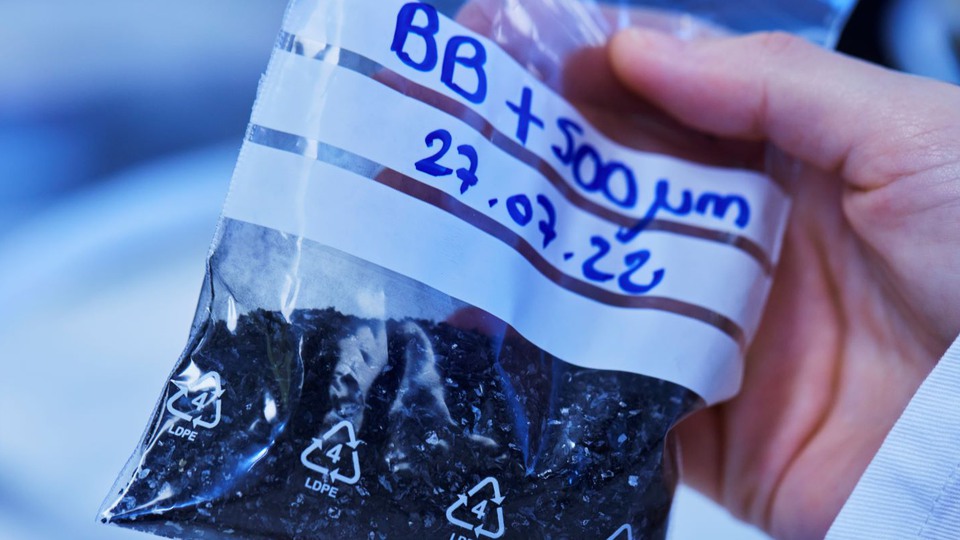
Crushed lithium ion batteries with rare earth metals. Photo: Chalmers University of Technology, Henrik Sandsjö.
A new battery value chain
The green industrialization has created a high demand for lithium-ion batteries. The challenge is to meet tomorrow's needs with sustainable methods; moving from a linear flow of production and waste to a circular one through production, collection and reuse.
Research in the battery value chain for lithium-ion batteries has increased significantly in recent years, both in Sweden and other European countries. An ecosystem for sustainable battery production is rapidly developing in Sweden. There is a need for an improved system understanding, which is the reason for the project InnoBat2035 - An innovation system perspective on circularity for electromobility batteries and materials in Sweden.
Collaboration throughout the battery value chain
The project idea was initiated by researchers associated with the (CCR) Comptence Center of Recycling at Chalmers University of Technology and representatives from the mining and mineral industry. They identified a growing interest in increased cooperation between the battery ecosystem in northern Sweden the materials cluster in Business Region Gothenburg. The project involves a wide range of stakeholders in the current and future ecosystem of electromobility batteries, from producers and recyclers to universities, research institutes and government organisations. The consortium consists of 20 partners, including Northvolt, Boliden Rönnskär and Luleå University of Technology.
The project's purpose is to achieve lower environmental impact, more efficient management of resources and development of circular business models. The challenge is to achieve this at the same time as large-scale production of batteries is put in place and new legislation implemented. The Battery Regulation, which was recently adopted in the EU, is in its current form a framework where much of the concrete parts remain to be developed.
Recycling techniques
A key factor for a new battery value chain is achieving higher environmental sustainability by improving battery recycling techniques. For example, the abilty to extract more metals from recycled batteries or a second life in a different context. The manufacture of lithium batteries requires metals such as cobolt, manganese and nickels. These are available in limited quantities and mined in places with limited regulations for social and environmental sustainability, while demand in rising.
Another aspect of the project is the regional development that comes with batteries. Production and recycling lithium-ion batteries play an increasingly important role in the economy and new regional battery clusters are being developed in northern Sweden and region Västra Götaland. With this comes increased demand for qualified staff. Solving the supply of skills is crucial for both sustainable social regional development and the entire battery value chain.

Boliden Rönnskär återvinningsstation. Foto: Boliden Rönnskär.
Fakta om InnoBat2023
InnoBat2035 ska leda till en stärkt konkurrenskraft för svenska aktörer i internationella sammanhang, i riktning mot ökad cirkularitet för elektromobilitetsbatterier och dess material i Sverige. Detta kommer att ske genom strategisk innovationssystemagenda som innefattar FoU, samverkansplattformar, kunskaps- och utbildningsbehov samt policyutveckling.
